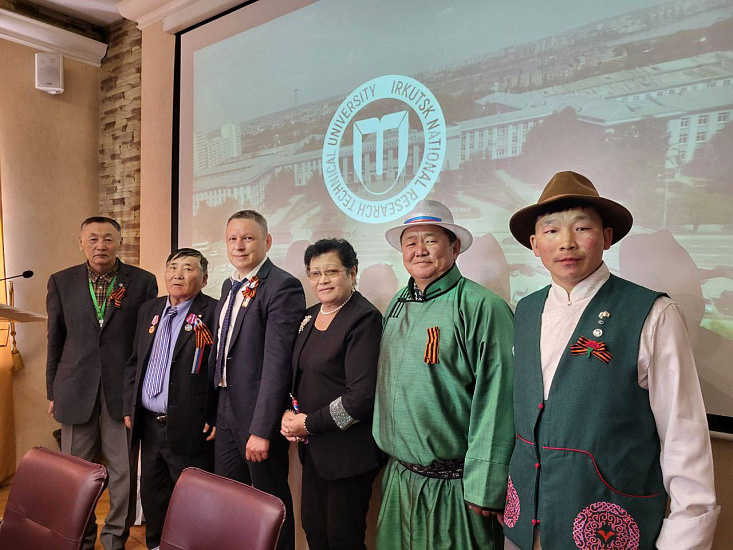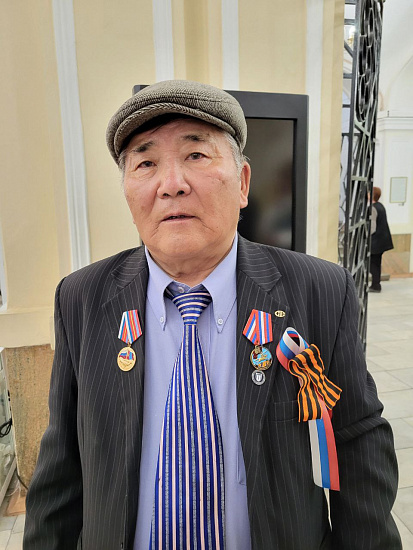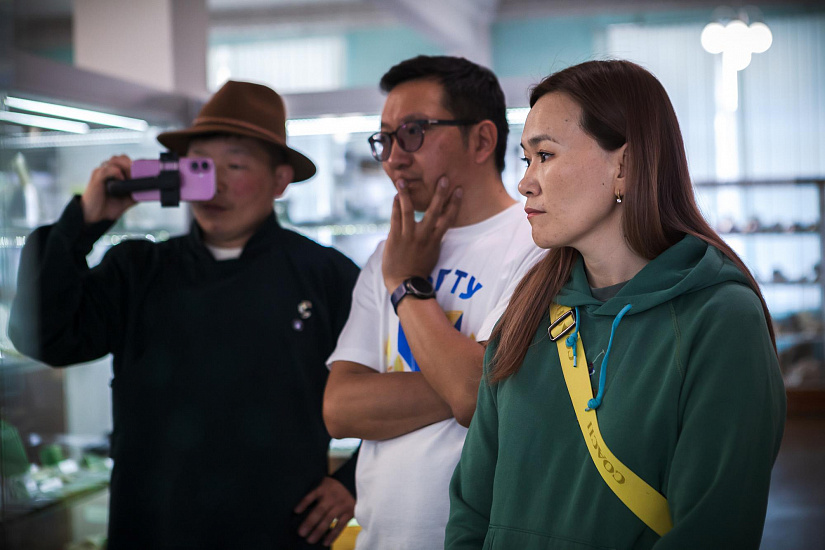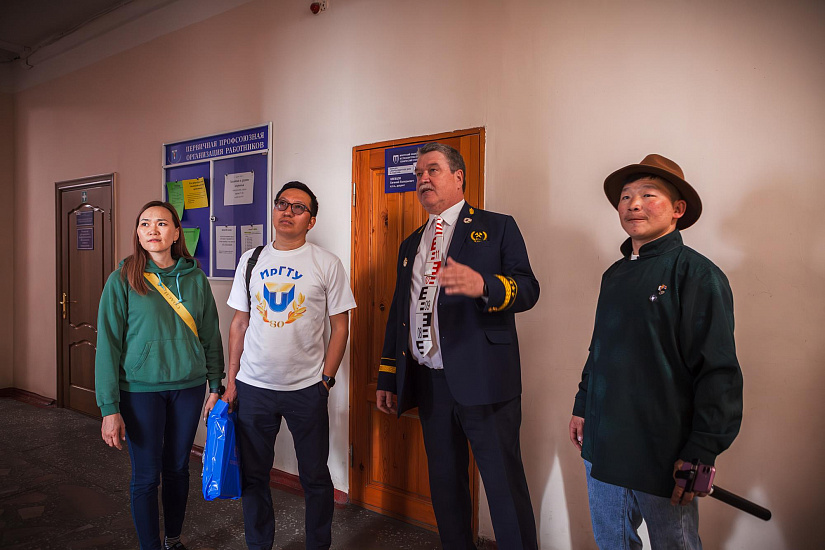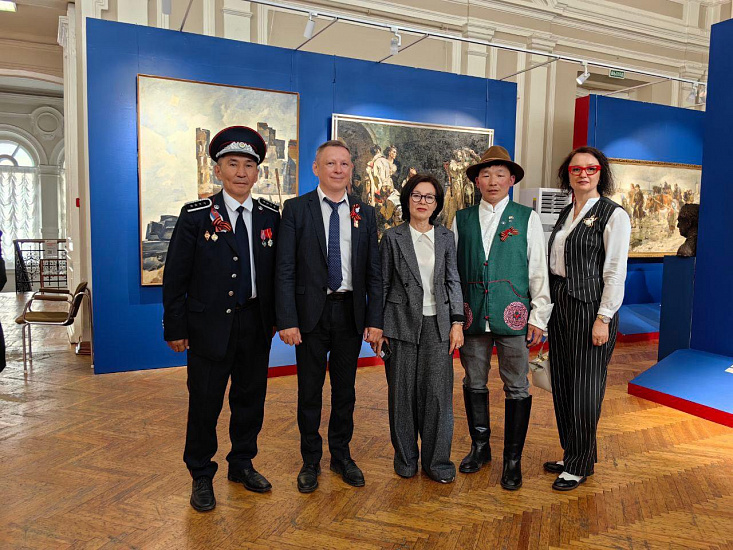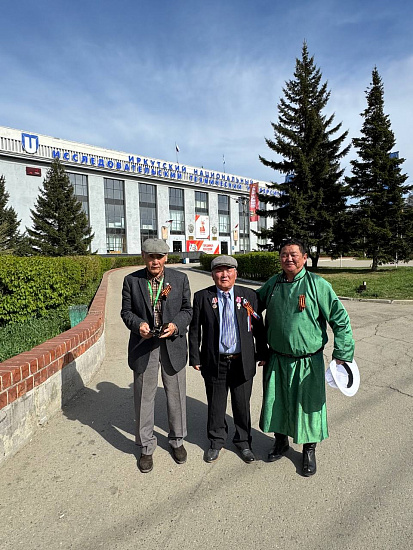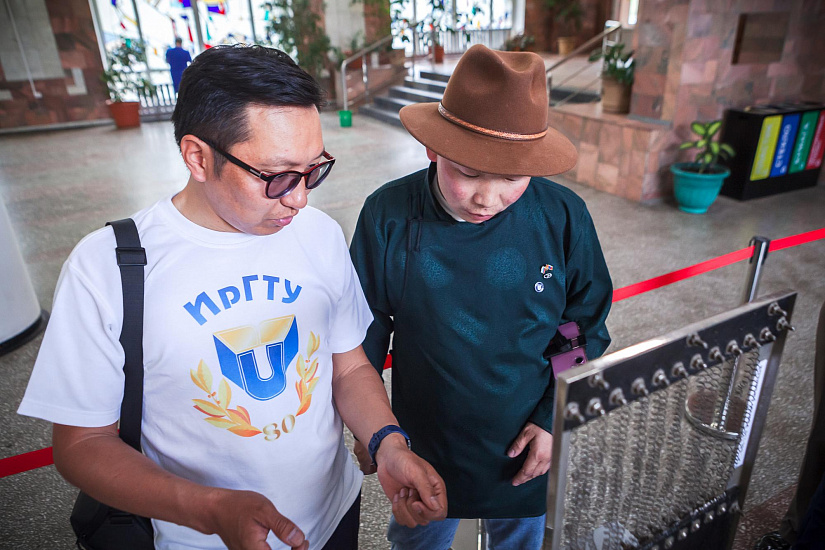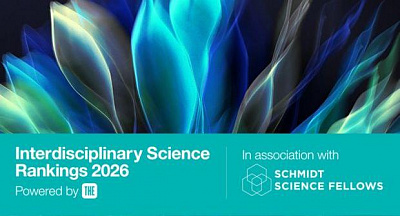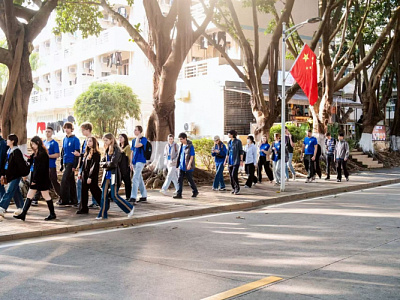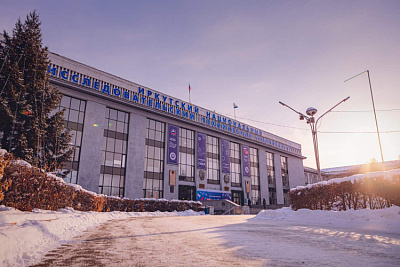Graduates from Mongolia Visit Irkutsk Polytechnic During Victory Day Celebrations
Graduates of Irkutsk National Research Technical University (INRTU) from Mongolia visited their alma mater during the celebration of the 80th anniversary of the end of the Great Patriotic War. They took part in the Victory Day parade, attended a meeting with university rectors, delivered humanitarian aid for participants in the Special Military Operation (SMO), and walked around the student campus, remembering their university years.
The delegation from the Mongolian Association of Alumni of Soviet/Russian Universities (MAVSUZ) was in Irkutsk on May 9–10. The visit was organized at the invitation of the Government of Irkutsk Region. The group was led by the Association’s Deputy Head, Dorjpalam Tsogzolmaa. Out of 40 graduates from various universities, most had studied at Irkutsk Polytechnic, Irkutsk State Medical University (IGMU), and Irkutsk State University (ISU).
On the first day, the guests participated in the Victory Day parade. Later, they met with members of the Council of Rectors, university representatives, and the Irkutsk Society of Friends of Mongolia. The meeting took place in the Academic Council Hall of ISU.
The participants were welcomed by INRTU Rector and Deputy Chairman of the Irkutsk Region Council of Rectors, Mikhail Korniakov. He emphasized that the Russian people are grateful to the Mongolian nation for its invaluable support during the Great Patriotic War. Mongolia sent 500,000 horses to the front—every fifth horse used by the Red Army. They also sent winter clothing and food: tens of thousands of sheepskin coats, felt boots, fur mittens, and over 316 tons of meat. Up to 500 Mongolian snipers and artillery soldiers fought for the USSR.
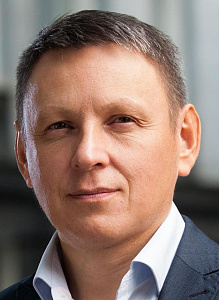
“Thank you to the Mongolian people. We won the war together. Today, this is our common holiday,” said Rector Korniakov.
Mongolia is still a close neighbor to Russia and continues to offer support in difficult times. Deputy Head of MAVSUZ, Dorjpalam Tsogzolmaa, shared that the delegation had brought humanitarian aid for SMO soldiers receiving treatment in hospitals. The aid included sea buckthorn-based products, known to boost immunity and help wounds heal faster. A total of 65 boxes of oil and other remedies were collected.
Nadezhda Glyzina, Deputy Head of the Irkutsk Society of Friends of Mongolia, gave the head of the delegation a certificate of appreciation on behalf of the Society’s Chairman and Regional Legislative Assembly Deputy, Kuzma Aldarov.
Rector Mikhail Korniakov also gave the alumni a tour of the student campus. Many of them had not visited their university for years. Several had dedicated their careers to the Erdenet Mining Corporation. For example, B. Majinbuu, Head of the MAVSUZ branch in Erdenet, graduated as a metallurgist in 1976. Though he never worked in his specialty, he became a teacher at the mine’s training center and later at a technical college, retiring from the Technological Institute at the plant.
Ya. Chinbat, a 1975 graduate in automotive transport, worked as Deputy Chief Mechanic at the plant. Both Majinbuu and Chinbat had not returned to the Polytechnic in 35 years. Another participant, Gonchigdorjinn Batjargal, graduated in 1990 as a civil engineer. In Erdenet, he helped design and implement water supply and sewage systems.
During their visit, the alumni honored the memory of Shagdaryn Otgonbileg — a well-known graduate of INRTU, a member of the Mongolian Parliament, and the first Mongolian director of the Erdenet Mining Corporation. As a mine survey engineer, he raised the plant to international standards. A memorial plaque in his honor has been placed at the Institute of Subsurface Use.
On May 10, younger alumni visited the main INRTU building. They were welcomed by Maria Matveeva, Chief Curator of the A.V. Sidorov Mineralogical Museum, and Zulfiya Taradeeva, Specialist in Exhibition Activities.
The group attended the “Victory Students” exhibition, which featured vintage photos, documents, furniture, and engineering instruments used during the war years. They also toured the Mineralogical Museum, home to 28,000 samples of minerals, gemstones, and fossil remains of plants and animals.
Ganbaatar Uuganbaatar, a graduate of the Institute of Subsurface Use, warmly recalled his university days, calling the student campus one big family. In 2014, he graduated with honors in mineral processing and began his career at the Erdenet plant, starting as a lab assistant and later becoming a flotation operator.
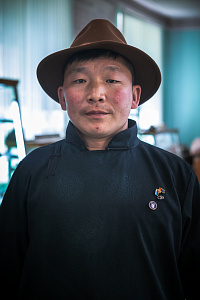
“I fondly remember INRTU. I can say for sure that this university gave me not only knowledge, but also helped shape me as a person. I look up to older INRTU graduates like the famous mine surveyors Khookhoryn Badamsuren and Anatoly Okhotin.
Unfortunately, there are fewer Russian specialists in Erdenet today, which is why fewer of our school leavers apply to Russian universities. I believe high school students should consider studying in Russia. For example, INRTU provides a high-quality education that is valued around the world.
The main thing during student life is not to be lazy, use your time wisely, and talk to others. That’s what I did—I visited friends in the dorms, went to Angarsk and Slyudyanka, and even joined a student work team in Irkutsk. I made friends from Russia, Vietnam, and other CIS countries, and I still keep in touch with many of them,” said Ganbaatar Uuganbaatar.
Purev-Orshikh Baasankhuu, a 2010 metallurgy graduate, now works as a lead quality engineer at the plant. He considers his greatest achievement to be the family he created with Byambasuren Ariumaa. They met on campus, and today both work at the Erdenet plant, raising two daughters and a son. Their children attend a Russian kindergarten, and they brought one of the girls with them to Irkutsk in May.
Byambasuren Ariumaa graduated from the Department of Management in 2009. Today, she is responsible for contract management at the plant’s Technological Institute. She speaks Russian almost without an accent and remembers how, 21 years ago, she arrived in Irkutsk and struggled to be understood. Public work helped her improve her spoken language—back then, she helped fellow Mongolian students adjust to life in Russia.
Her fondest memories are of Natalia Semyonovna Belousova, who worked at the International Faculty.
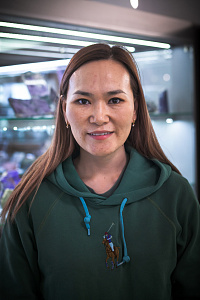
“We came here as 17-year-olds. Natalia Semyonovna was like a mother to us—she cared for us and helped with many things. My husband and I graduated with honors. We tried hard to study well because people were investing in us, and we felt responsible to those who supported us. Who I am today and the work I do are thanks in large part to the education I received at INRTU.
I’m glad I visited Irkutsk again. The Mineralogical Museum made a big impression on me. It even inspired me to create an educational mineral display at our institute,” shared Byambasuren Ariumaa.
